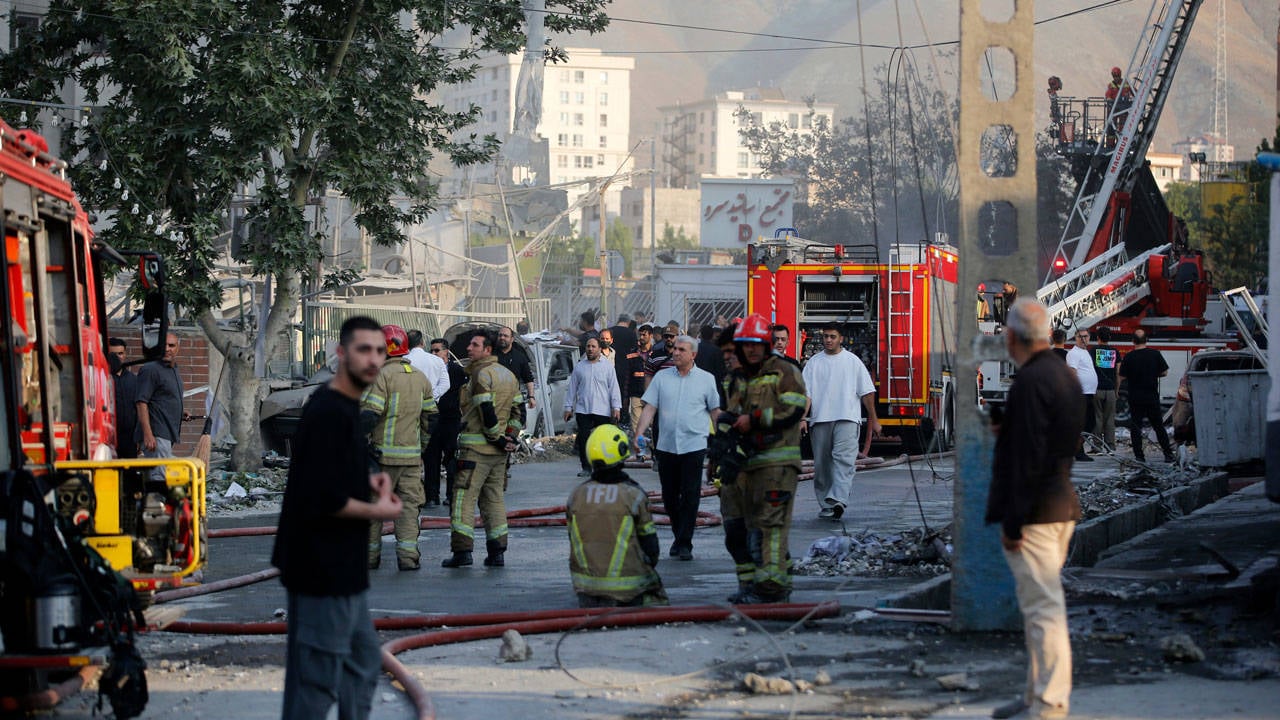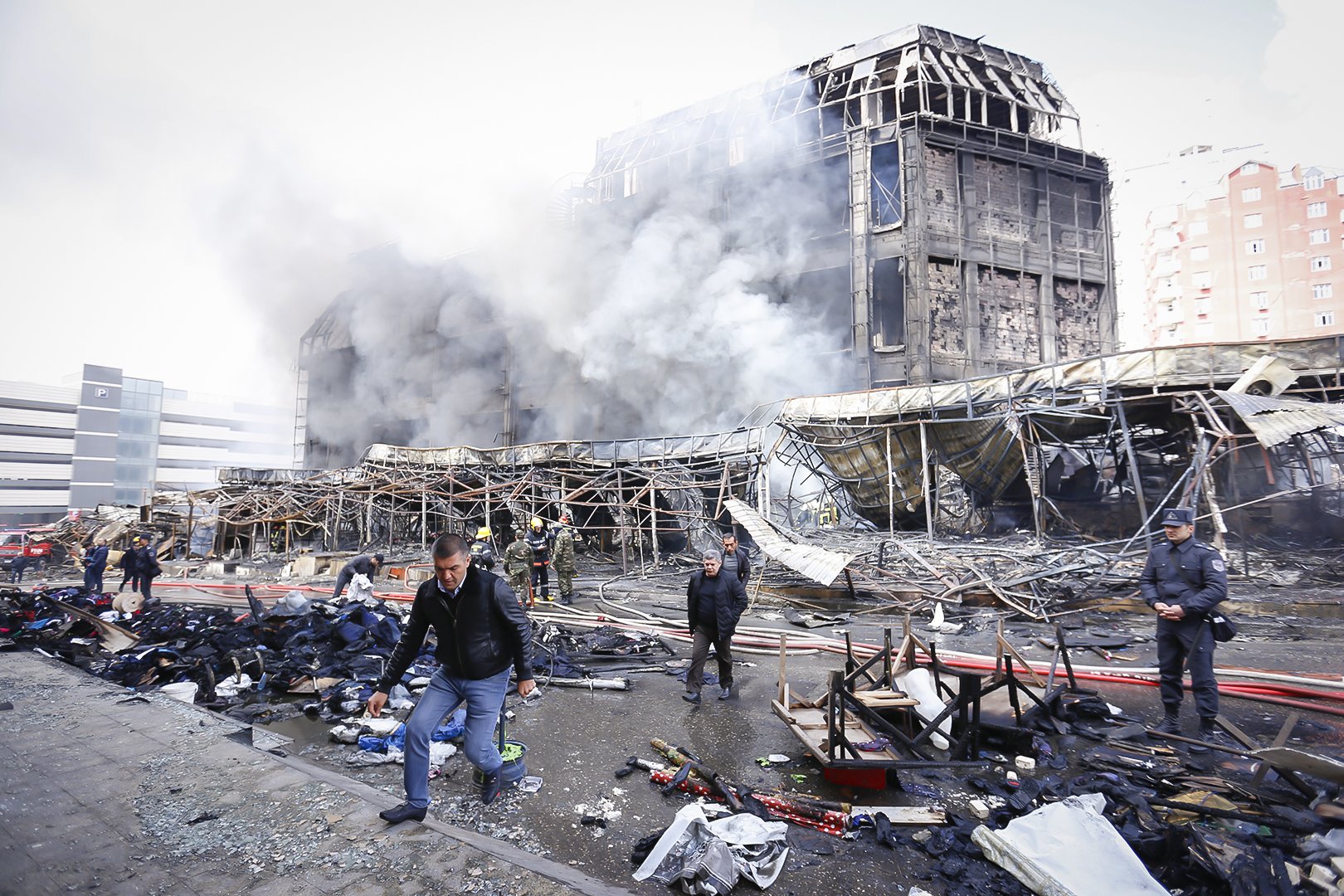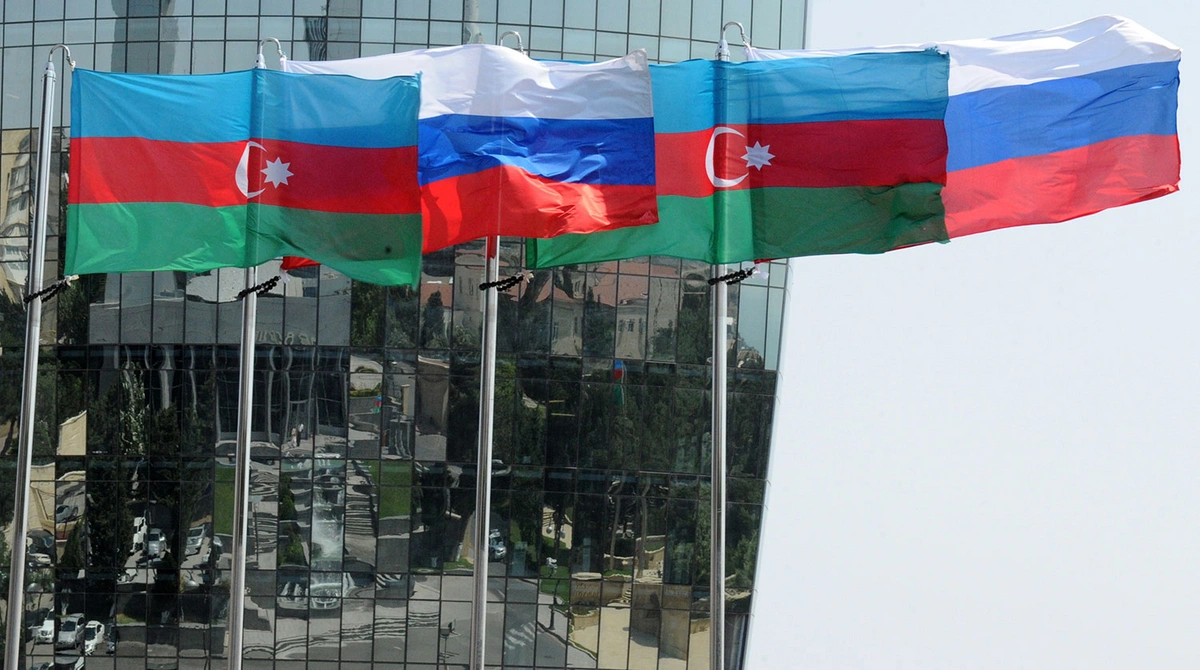Azerbaijan reopens border with Iran after five years for its citizens and foreign refugees
Evacuations from Iran to Azerbaijan
Azerbaijan’s land borders have officially remained closed for over five years. However, following Israel’s missile strikes on Iran, an exception has been made under the pretext of humanitarian concerns.
In recent days, thousands of Azerbaijani citizens and nationals of other countries (excluding Iranians) have entered Azerbaijan by land from Iran.
Since March 2020, Azerbaijan closed all land borders for passenger traffic due to the COVID-19 pandemic. This restriction has been extended until July 2025. Freight transport continues as usual. The prolonged closure has triggered economic, social, and political discontent across the country.
Residents of border regions with Iran, Russia, and Georgia report heavy financial losses due to the halt in cross-border trade. Azerbaijani migrant workers abroad — particularly in Russia — have also faced serious hardship, unable to return home because of the closed borders.
The decision has sparked considerable political speculation. President Ilham Aliyev has insisted it is “to protect people’s health and ensure their safety.”
Permission to сross the иorder with Iran
On 17 June, Foreign Ministry spokesperson Aykhan Hajizadeh announced that, in light of tensions between Israel and Iran, Azerbaijani embassies and consulates in both countries have been receiving hundreds of evacuation requests via emergency hotlines from Azerbaijani citizens and foreign nationals.
“All applications are being reviewed promptly on a daily basis,” Hajizadeh told the pro-government outlet Report.
According to him, Azerbaijani authorities are currently processing more than 1,200 applications from citizens of 51 countries, and over 60 individuals have already crossed the border. The evacuated foreign nationals are transported by bus from the border directly to Baku Airport, from where they return to their home countries.
He also said that 41 Azerbaijani citizens — including family members of embassy staff — have returned home from Iran via the land border. Azerbaijani nationals in Israel are being directed to neighbouring Egypt and Jordan. “Arrangements have been made for 34 of our citizens to cross from Israel into Jordan,” Hajizadeh added.
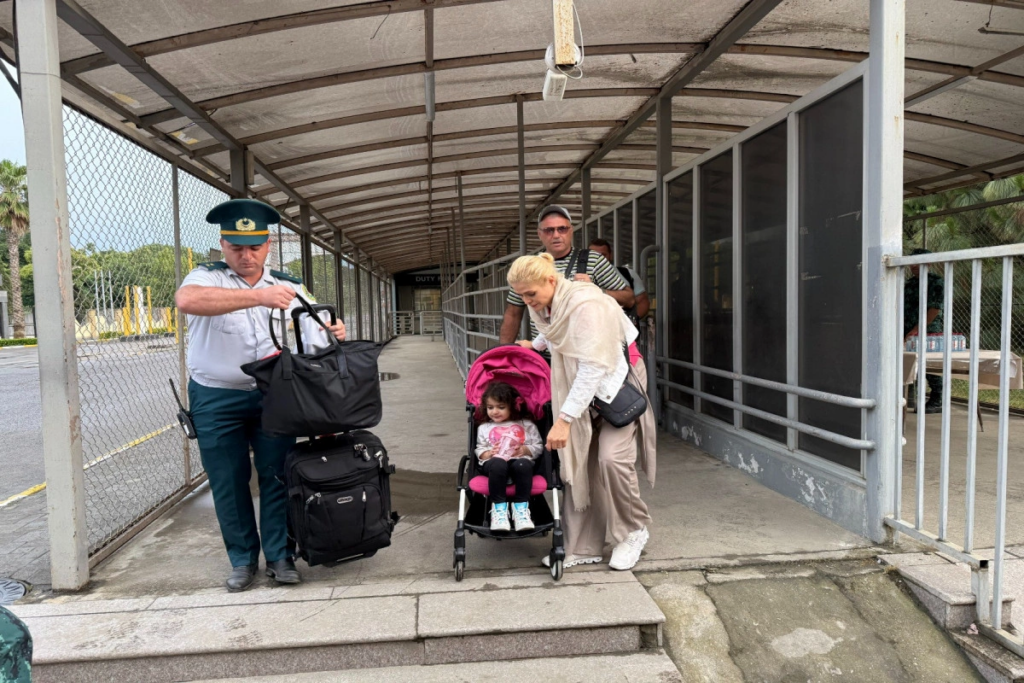
According to Agence France-Presse (AFP), more than 600 foreign nationals from 17 countries have crossed from Iran into neighbouring Azerbaijan since 13 June, when Israeli strikes on Iran began. The information was provided to the agency by a representative of the Azerbaijani government.
Public compares government aid to evacuees from Iran with harsh treatment of Azerbaijani labour migrants
In Azerbaijan, the public is actively — and often bitterly — discussing the contrast between how the government is assisting evacuees from Iran and how it treated Azerbaijani labour migrants trying to return home from Russia during the COVID-19 pandemic and the start of Russia’s war against Ukraine.
In 2020, when the pandemic began, the closure of land borders became a serious ordeal for Azerbaijani citizens working in Russia. At the time, hundreds of people were forced to spend weeks or even months at the border, particularly at the Yarag-Kazmalyar checkpoint, often without even basic living conditions.
The borders were closed in March 2020, and the first group of Azerbaijani citizens — just 240 people — were allowed to re-enter the country only on 15 June. Thousands of others staged mass protests at the border, which were violently suppressed by Russian police.
Official reports stated that around 50 people were injured and 93 detained. Unofficial sources claimed that at least two people died.
At the time, Azerbaijan’s ambassador to Russia, Polad Bulbuloglu, told citizens:
“I asked you not to go to the border — you could get sick there (referring to COVID-19). In that case, we won’t be able to help you. I understand it’s difficult, but you will have to wait. There is no other option.”
In 2022, after Russia launched its full-scale invasion of Ukraine, the situation repeated itself. Hundreds of Azerbaijanis were forced to wait for days — sometimes in the snow — on the Russian side of the border because they were not allowed to enter Azerbaijan.
Most of them were undocumented labour migrants.
At the time, Prime Minister Ali Asadov stated that although many COVID-19 restrictions had been lifted, the border closures remained in place because the pandemic was “not yet over.”
Asadov advised those stranded at the border to use air travel. However, direct flights between Azerbaijan and Russia had been suspended. Azerbaijan’s national carrier AZAL cited complications with international aviation insurance and sanctions against Russia as the reason flights were not operating.
On Azerbaijani social media, many now note the stark difference in how people in similarly difficult situations have been treated — likely due to refugee status.
Most of those currently allowed to enter Azerbaijan from Iran either have diplomatic status or are foreign nationals. In contrast, those stuck on the Russian border were primarily labour migrants and ordinary Azerbaijani citizens trying to return home.
Political dimension of border closures
As noted by Vafa Nagi, founder of a civic initiative group advocating for local citizens’ rights, the official justification of “security” for keeping Azerbaijan’s borders closed has gradually evolved into a political narrative.
President Ilham Aliyev’s claim that “closed land borders protect us from threats” is frequently echoed by pro-government media. This rhetoric has become particularly prominent amid heightened regional tensions following the escalation between Israel and Iran.
“The regime is trying to shield itself from the people, and to justify restrictions placed on the population, fear is being used. The pandemic ended long ago, and society now demands a legally grounded explanation for why citizens’ freedom of movement continues to be restricted after nearly five years,” Nagi said.
“Don’t close the borders, don’t hold people captive”
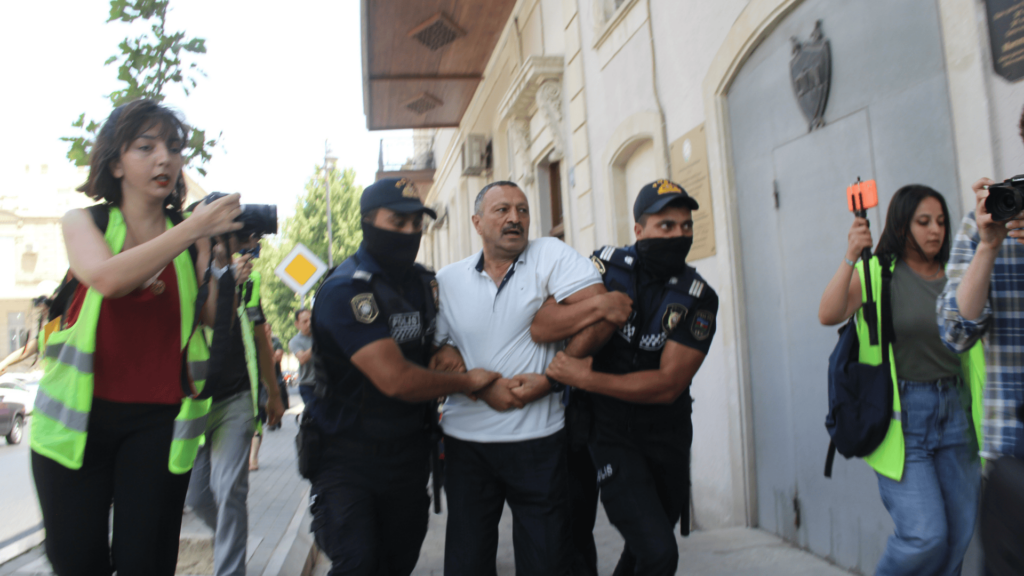
One of the most symbolic protests demanding the reopening of land borders was held in Baku in July 2022 by prominent opposition figure Tofig Yagublu — now imprisoned and serving a nine-year sentence.
A member of the Musavat Party and the National Council of Democratic Forces, Yagublu called for the reopening of land borders under the slogan: “Don’t close the borders, don’t hold the people captive!”
Protesters argued that the restrictions had led to a sharp rise in airfare prices, hindered tourism and trade, and severely limited the freedom of movement for ordinary citizens — including their ability to see family members living in neighbouring countries.
The demonstration was planned outside the Cabinet of Ministers building, but was violently dispersed by police almost immediately. Many participants were detained.
A total of 28 people were arrested, including Yagublu and activists from the Azerbaijani Socialist Party and the NIDA movement. Tofig Yagublu was subjected to police violence during his arrest.










